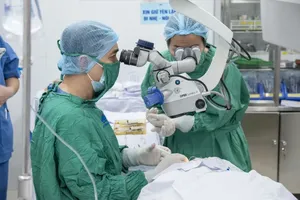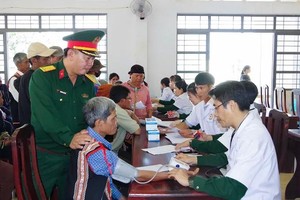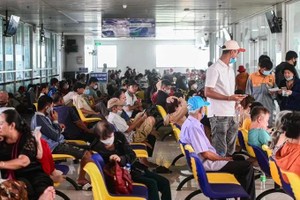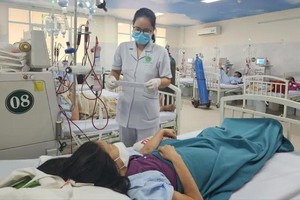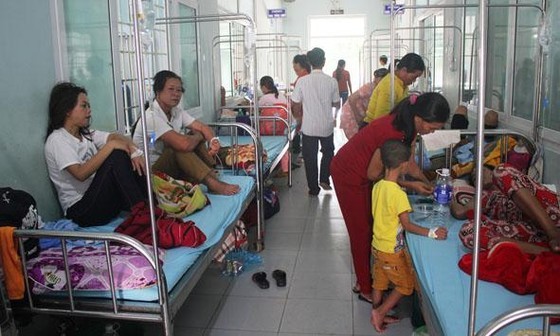 Hospitals are overloaded with surge in dengue fever patients
Hospitals are overloaded with surge in dengue fever patients
Compared to the same period in 2021, the number of dengue fever cases in the country this year surged 4.9 times and 112 people succumbed to the disease. Worse, patients overload hospitals with many severe cases.
According to the Ministry of Health, from the beginning of 2022 to now, the country has recorded more than 303,630 people with dengue fever including 112 deaths.
As normal, southern provinces are always hot spots of dengue epidemic season whereas this year, in Hanoi, the number of dengue cases is also increasing sharply week by week; the capital city has so far recorded 12,059 dengue cases, an increase of 3.8 times compared to the previous year including 12 deaths.
With the number of dengue cases continuously increasing, many hospitals in Hanoi were overloaded. Many patients were transferred from grassroots medical facilities to big infirmaries when they are in serious conditions including elevated liver enzymes, and kidney failure. For instance, the Central Hospital for Tropical Diseases is currently treating over 100 severe dengue patients and 10-20 patients are admitted to the hospital every day.
Elsewhere in Hanoi, Bach Mai Hospital receives 30-50 patients with severe dengue daily. Meanwhile, many dengue patients were hospitalized in some medical facilities in the South late and they did not have health insurance, so they faced financial difficulties for prolonged treatment.
According to medical experts, dengue begins abruptly after a typical incubation period of 5–7 days, and the course follows 3 phases: febrile, critical, and convalescent. In the febrile phase, fever typically lasts 2–7 days and can be biphasic. Other signs and symptoms may include severe headache; retro-orbital eye pain, muscle, joint, and bone pain, macular or maculopapular rash, and minor hemorrhagic manifestations including petechia, ecchymosis, purpura, epistaxis, bleeding gums, hematuria, or a positive tourniquet test result.
The critical phase of dengue begins at defervescence and typically lasts 24–48 hours. Most patients clinically improve during this phase, but those with substantial plasma leakage can, within a few hours, develop severe dengue as a result of a marked increase in vascular permeability.
This phase lasts about 24-48 hours. Patients may still have a fever or have decreased fever and may have symptoms such as body aches. Severe dengue is defined as dengue with any of the following symptoms: severe plasma leakage leading to shock or fluid accumulation with respiratory distress, severe bleeding; or severe organ impairment such as elevated transaminases ≥1,000 IU/L, impaired consciousness, or heart impairment.
From the fourth day onwards, the patient usually has no fever, so he can subjectively think he has recovered. However, this is the stage when the disease can progress to severe with symptoms such as abdominal pain, vomiting, and bleeding.
There is no vaccine or specific medication for dengue fever, so the Ministry of Health recommended prevention is mainly limited to the environmental management of mosquitoes. People in the dengue-endemic area should kill mosquitoes and larvae, and prevent mosquito bites. Households need to actively coordinate with the health sector in spraying chemicals to prevent epidemics. Anyone who has symptoms of fever should immediately go to a medical facility for examination and treatment advice.






